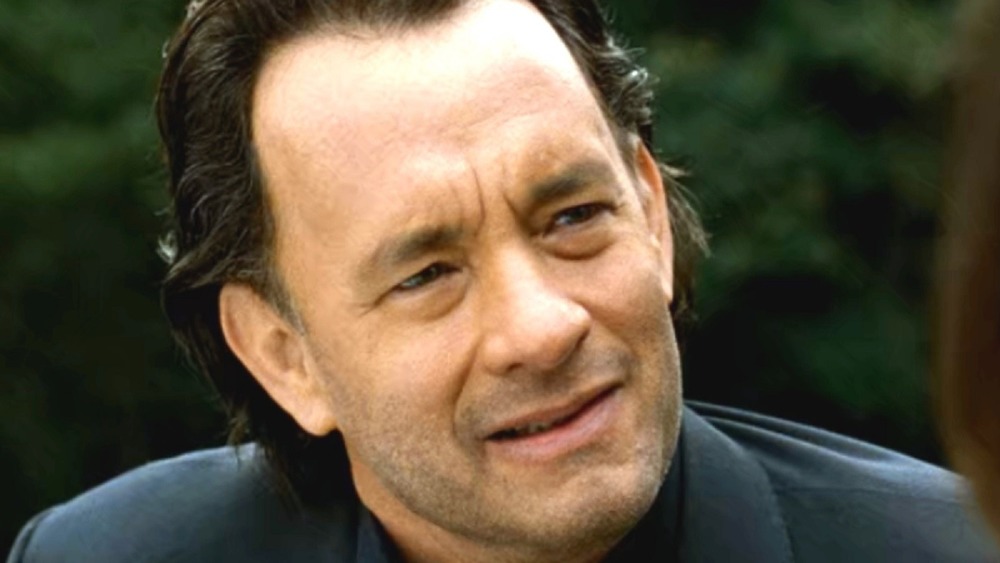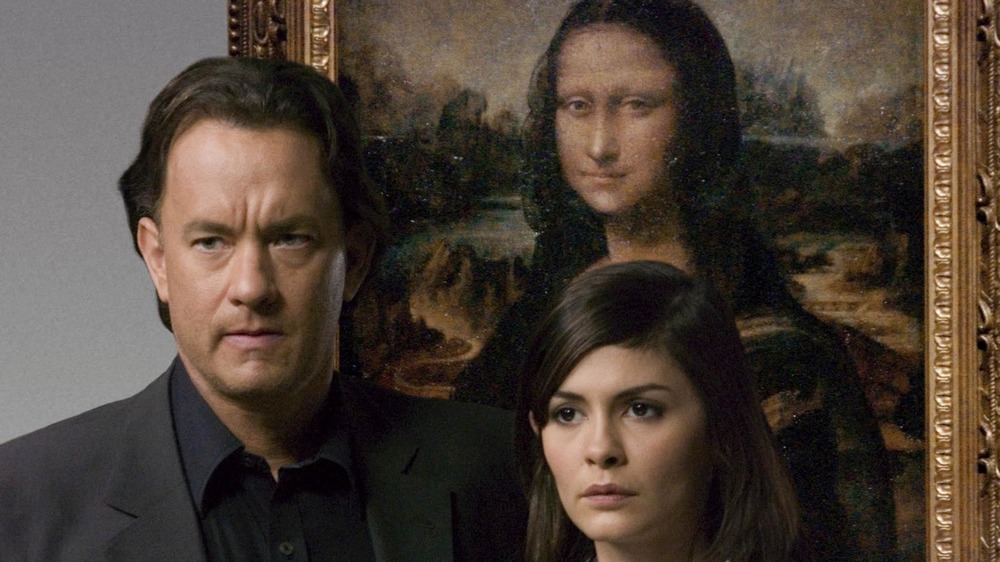The Controversial Tom Hanks Mystery Thriller That's Heating Up On Netflix
Close your eyes and imagine for a moment that it's 2006. Fergie is blowing up the charts with "London Bridge," the Motorola RAZR is the hottest cell phone on the market, and outlandish conspiracy theories are mostly relegated to the world of arts and entertainment. Specifically, conspiracy theories were the subject of one of the most popular and controversial movies of that year: The Da Vinci Code. Fifteen years later, in 2021, The Da Vinci Code is experiencing another wave of buzz thanks to its streaming availability on Netflix.
This history-inspired thriller sees Tom Hanks playing Robert Langdon, a renegade professor of symbology who gets wrapped up in a murder mystery of literal Biblical proportions when a curator is discovered murdered at the Lourve. Due to the symbolic nature of the crime, Langdon is called in to consult on the case. He ends up partnering with Sophie Neveu (Audrey Tautou), a cryptologist working with the French police, to try to unravel the cryptic clues. Their investigation leads them to the doorstep of an ancient cult with ties to early Christianity, and a perplexing code that can only be cracked by answering one of the great riddles in the history of Western art: What's really behind the Mona Lisa's smile?
Like the Dan Brown novel it was based on, The Da Vinci Code was a huge commercial success, bringing in a staggering $760 million when it released in 2006. Unfortunately, the movie also shared the book's critical panning (it has only a 26 percent rating on Rotten Tomatoes) and its massive controversy. And although it was for very different reasons, many in the Catholic world agreed with the critical consensus that viewers should skip The Da Vinci Code.
Both critics and prominent Catholics disliked The Da Vinci Code
The release of The Da Vinci Code was met with intense backlash by prominent Catholics all around the world, who objected to the ideas about the life of Jesus presented in the movie. There were condemnations, calls for boycott, and even blogs and documentaries devoted to debunking the content of the film (via The Los Angeles Times).
The movie was also effectively banned in multiple countries around the world. In China, the movie was pulled from theaters after protest (via The New York Times), and in the tiny Faroe Islands, the managers of the territory's movie theaters refused to play the film (via MBL).
That's not to say everyone was up in arms about the movie. One Vatican official, Monsignor Robert Sarno, is quoted in The Los Angeles Times as saying of the property, "I don't think The Da Vinci Code is an attack on the church. [...] I think it's a great novel that I found very gripping and interesting to read."
The star of the film shared Monsignor Sarno's view. In a statement to the London Evening Standard, Hanks said, "The story we tell is loaded with all sorts of hooey and fun kind of scavenger-hunt-type nonsense. If you are going to take any sort of movie at face value, particularly a huge-budget motion picture like this, you'd be making a very big mistake."
You can decide how you feel by checking out The Da Vinci Code on Netflix.

